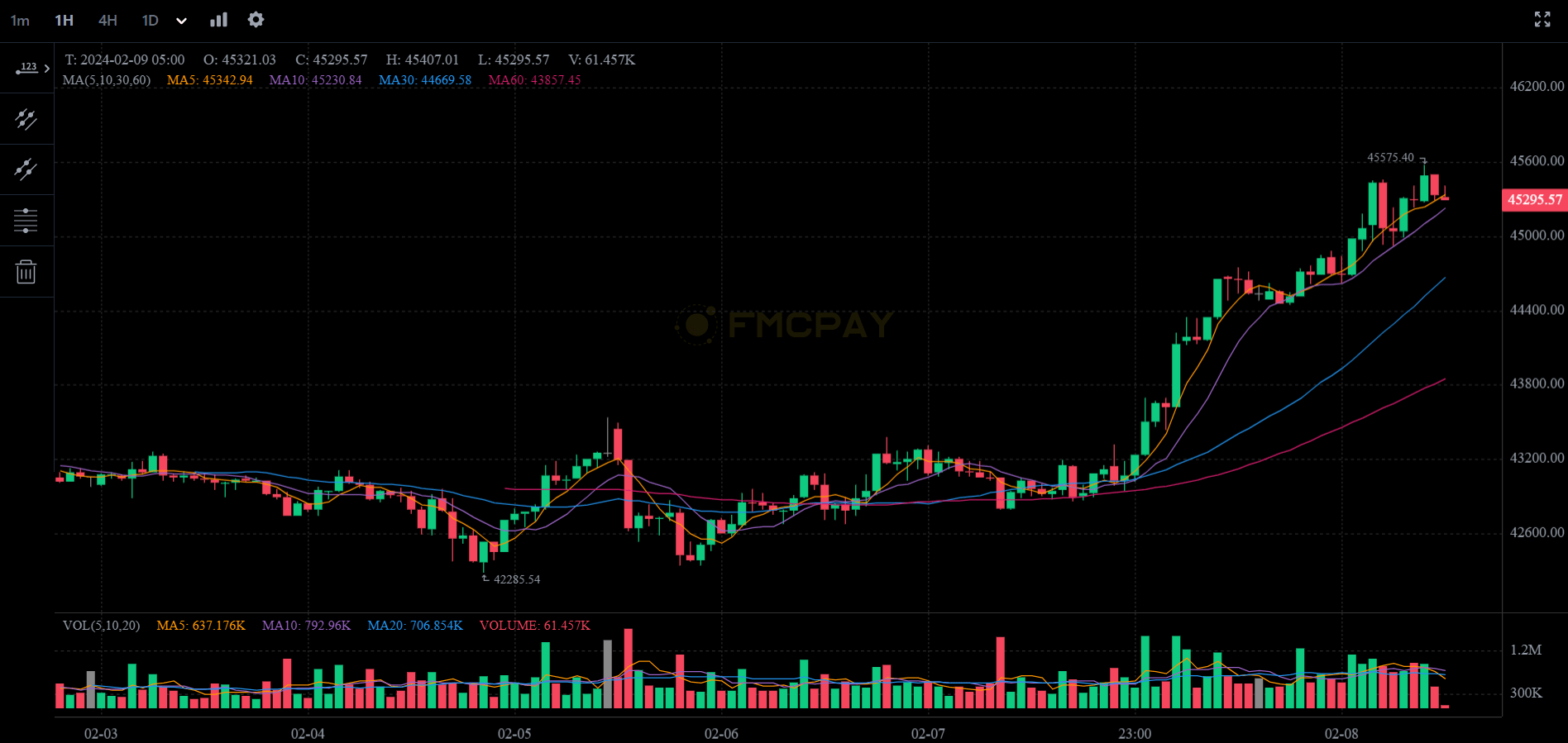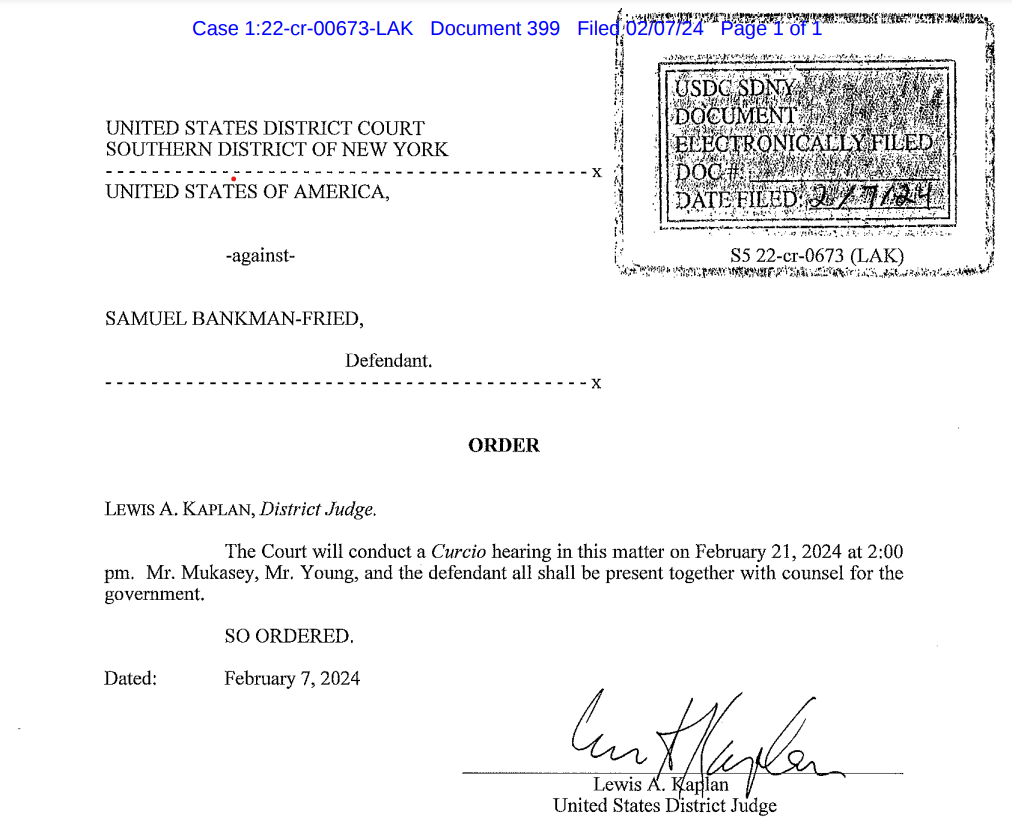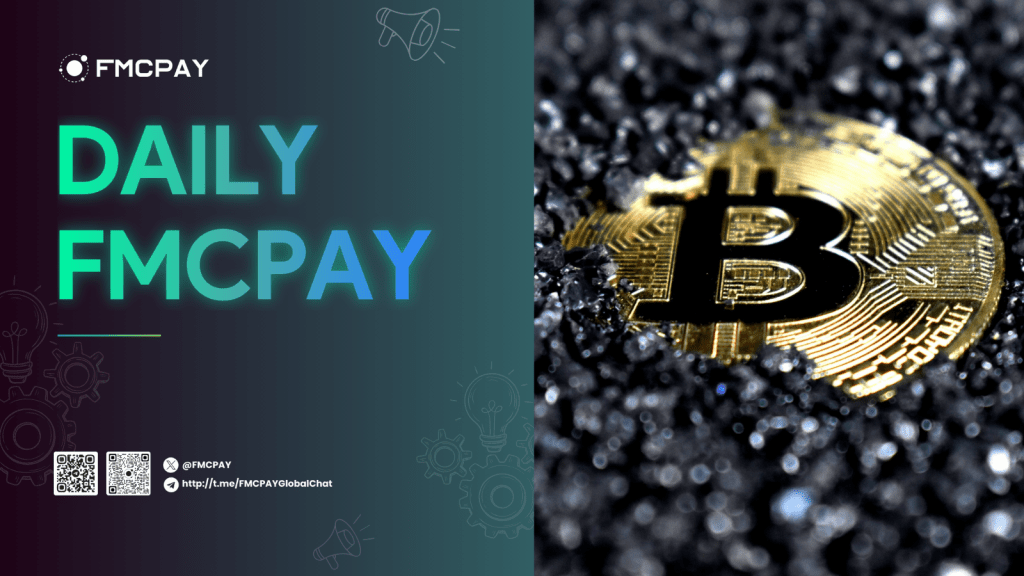The price of Bitcoin has risen today, surpassing $45,000 for the first time in almost a month.
According to data from FMCPAY and TradingView, Bitcoin has surged by more than 5.36% in the past 24 hours, reaching a four-week peak of $45,575

In their weekly report, CryptoQuant stated that the selling pressure has diminished as miners continue to retain their reserves, despite experiencing decreasing profits from Bitcoin network fees. Meanwhile, Bitcoin (BTC) is witnessing a rise in whale accumulation.
According to data from Glassnode, wallets holding more than 1,000 BTC have increased by 3.6%, rising from 1,992 wallets on January 19 to 2,064 on February 6.
Further data from market intelligence firm Santiment reveals a notable spike in daily active addresses (DAA), surging from 760,450 on January 21 to over 907,040 on February 7. This resurgence in whale accumulation and heightened network activity may be attributed to growing optimism regarding BTC price, particularly as the Bitcoin halving event approaches.
Polygon introduces open-source prover for Ethereum chains, enabling ZK layer 2 integration.
Polygon, a leading Ethereum scaling protocol, has introduced a novel Type 1 prover, facilitating ecosystem chains such as optimistic rollups to enable zero-knowledge proof (ZK-proofs) layer-2 functionality.
Releasing the Type-1 upgrade to the zkEVM prover, the next generation of Polygon’s proving tech. It can generate proofs for any EVM chain—sidechain, optimistic rollup, even Ethereum itself.
When proving Ethereum mainnet blocks, avg per-transaction costs are $0.002 – $0.003.… pic.twitter.com/KDX8XIiwyh
— Polygon (@0xPolygon) February 8, 2024
Polygon announced that its next-generation Polygon zkEVM Type 1 prover will be available as open source to Ethereum ecosystem participants. Brendan Farmer, Polygon co-founder, said the development of the technology, which was built with the help of Toposware, was a year in the making and unlocks the ability to generate ZK-proofs for mainnet Ethereum blocks at an average cost of $0.002 to $0.003 per transaction. The Type 1 prover is dual licensed under MIT and Apache 2.0 and will be available on GitHub.
Farmer further emphasized that industry participants have previously deemed a layer-1 prover impractical and cost-prohibitive. Nevertheless, the team has successfully achieved efficiency and cost-effectiveness with their development.
Farmer elaborated that the technology enables the generation of ZK-proofs for any Ethereum Virtual Machine (EVM) chain. He emphasized that this advancement serves as a public good for the Ethereum ecosystem, eliminating the requirement for users and services to uphold a full node.
A Type 1 prover is considered to have “the highest level of compatibility with Ethereum,” allowing the generation of proofs for EVM chains with modifications or migrations. These proofs preserve execution logic like storage structure and hash functions.
The technology will also allow optimistic rollups, popular Ethereum L2 protocols that bundle transactions off-chain and submit proofs to mainnet, to tap into the benefits of the Type 1 prover. One widely cited drawback of optimistic rollups is a seven-day period within which funds are locked up.
Sam Bankman-Fried is scheduled to return to court for a hearing regarding legal representation.
Former FTX CEO Sam “SBF” Bankman-Fried will make a rare court appearance to address potential conflicts of interest in his legal team since the conclusion of his initial criminal trial. Judge Lewis Kaplan has ordered Bankman-Fried to appear in person on February 21 at the United States District Court for the Southern District of New York for a Curcio hearing.

During this hearing, the judge may inquire about Bankman-Fried’s legal representation, including any potential conflicts of interest involving lawyers Marc Mukasey and Torrey Young, according to the New York-based Blanch Law Firm.
The hearing originated from a letter issued by U.S. prosecutors on February 6, expressing apprehensions regarding Marc Mukasey and Torrey Young, who filed notices of appearance in both Sam Bankman-Fried’s (SBF) and former CEO Alex Mashinsky’s cases.
Prosecutors highlighted that Celsius had lent money to FTX’s sister company, Alameda Research, and Mashinsky partially attributed the collapse of the firm to SBF’s actions. These factors could potentially present conflicting positions during trial or sentencing for either former crypto CEO.
In the respective courtrooms, judges may inquire whether Bankman-Fried and Mashinsky desire to waive their rights to “conflict-free representation.” As of the time of publication, no notice of a Curcio hearing has been filed for Mashinsky’s case. The former Celsius CEO’s criminal trial is slated to commence in September.

